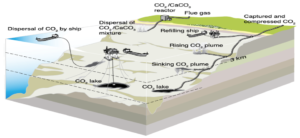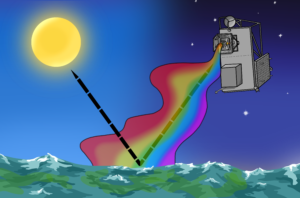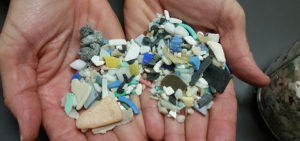This is the last part of my series on ocean plastic pollution. In this article I’ll highlight some different policies and campaigns that are changing society’s relationship with single-use plastics and leave you with some final thoughts on ocean plastic pollution.
This post is not meant to be an exhaustive list of all the policies in existence, just some that have popped on my radar. Feel free to post in the comments or drop me a note of other policies that you think deserve a mention if they weren’t included here.
I’ll focus on three groups of litter that have received the brunt of marine conservationists and policy makers’ ire: plastic straws, plastic shopping bags, and polystyrene.
You Suck
How often do you get a straw with your drink at restaurant? Probably damn near constantly. According to some estimates Americans use 500 million drinking straws, that’s roughly one straw for every person in the country, every day [1]. It might be an overestimate, but its also likely to be in the ballpark. Plastic straws are small, cheap, and lightweight which is exactly why they are so omnipresent. But this also makes it very easy for them to get scattered around and many of them wind up on the beach and in the ocean.

What’s so dangerous about a single straw? To get an idea watch this gut-wrenching video of a sea turtle having a straw removed from its nostril (warning: not for squeamish). This turtle video served as a wake-up call for a lot of folks and caused them to reevaluate their plastic straw relationship status, not just on Facebook, but in real-life too. Since it went viral (over twenty million views and counting) several campaigns and policies have emerged to help change society’s consumption of these little plastic pipes.
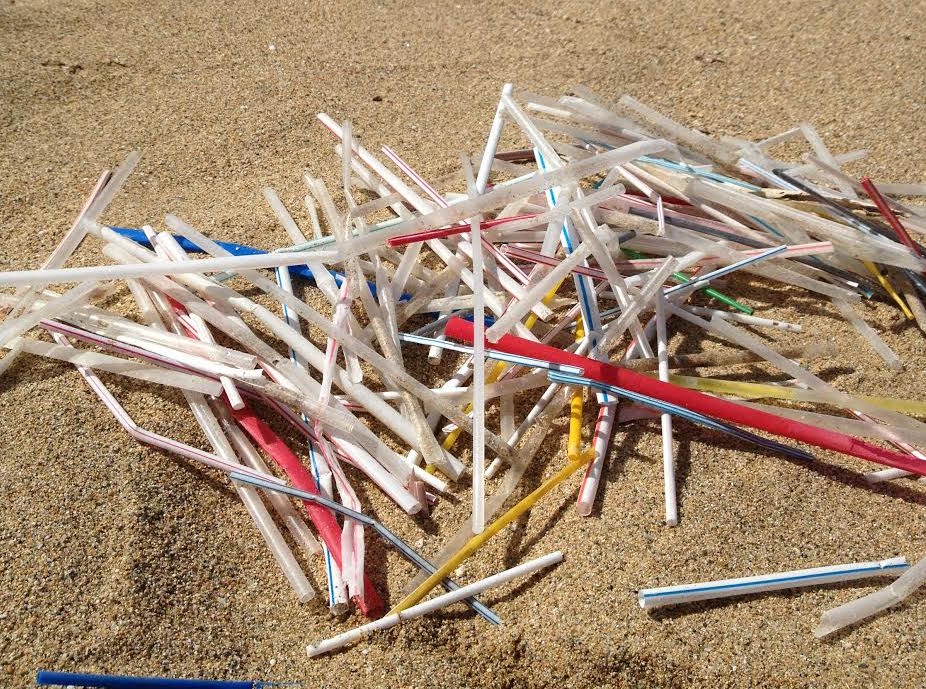
The Strawless Ocean project run by the conversation group Lonely Whale has gotten some great traction through their Strawless in Seattle campaign. Through public outreach and education of consumers (and businesses) they kept an estimated 2.3 million straws out of circulation over the course of three months. The campaign was so effective that the Mayor of Seattle is proposing a citywide ban on plastic drinking straws and utensils by July 2018, which would make it the first major metropolitan city to do so. They have a rather amusing campaign on twitter at the moment with celebrities challenging each other to #stopsucking.
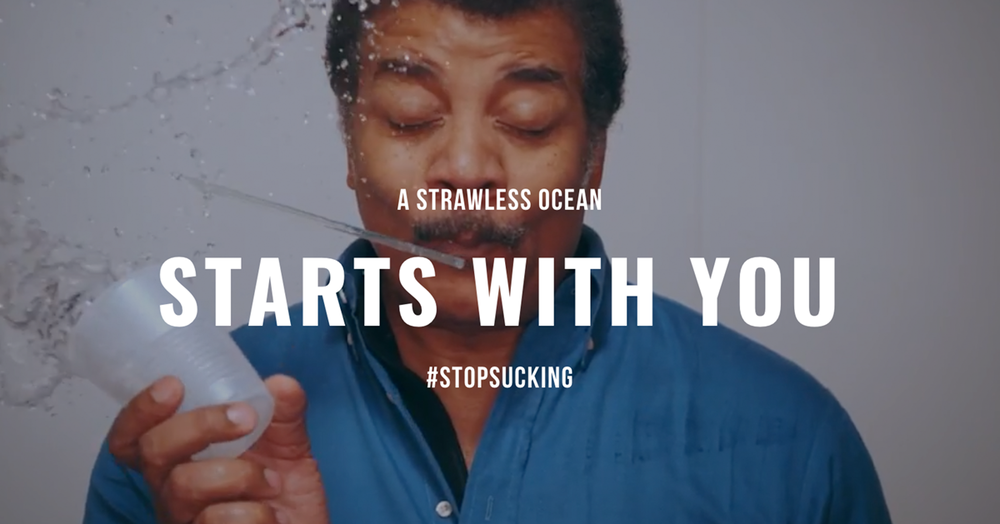
On the other side of the pond in London there is the Straw Wars campaign that asks restaurants and bars to stop serving straws. To-date 167 establishments have signed-up. The Surfrider Foundation also has an anti-plastic straw campaign and like the Strawless Ocean they are using a consumer-based approach, encouraging customers to tell their local businesses to quit-it with the plastic straws. The Be Straw Free campaign, founded by nine-year-old Milo Cress of Vermont, made international headlines and eventually lead to new plastic policies in the state legislature. Then there is the Straw Free group that is advocating for people to ditch the plastic straw and use a sustainably-grown bamboo straw instead.
Businesses are responding. McDonalds just recently announced that they will stop serving plastic straws at all of their 1,300 restaurants in the U.K. and instead serve a paper straw alternative [6]. According to the company roughly 3.6 million people visit their U.K. stores each year, so I think it’s safe to assume that this measure alone will keep millions of straws out of circulation. As another example, the London City Airport has also announced plans to phase out the distribution of plastic straws to its travelers. This will save an estimated 100,000 plastic straws each year [7].
Collectively these groups and many like them are getting the word out there about the dangers of plastic straws. Join them, and stop sucking.
Bag it Up
Humans use a ridiculous amount of plastic bags. Some estimates put the number at around a trillion each year [2]. Since plastic bags have such a low recycling value, many of them are simply thrown away. If not disposed of properly however, plastic bags get into all sorts of mischief: clogging drain pipes, gumming up machinery, and eventually winding up in the ocean.
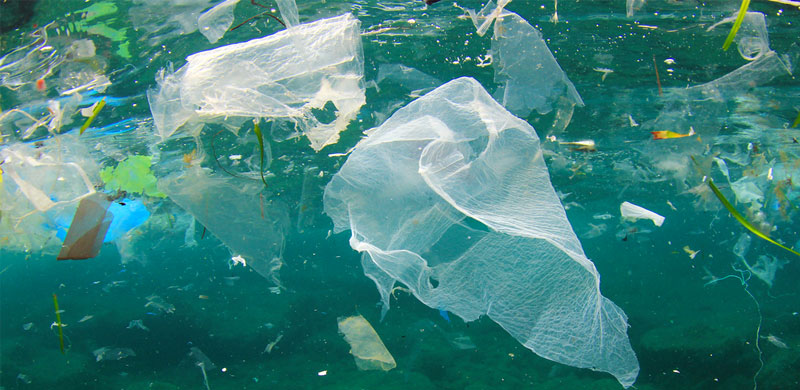
Plastic bags in the ocean may resemble some sort of underwater Casper the Ghost, but to marine creatures they look like an easy meal. Fish, turtles, and marine mammals mistake them for food and the bags wreck havoc on the digestive systems of these poor animals once swallowed, usually killing them. For example, this Cuvier’s beaked whale swallowed thirty plastic bags before it died.
Fortunately the tides are changing. A number of states and countries have put policies in place to ban or restrict the use of disposable plastic bags. California and Hawaii were the first states in the U.S. to ban plastic bags and other communities like in Colorado, Illinois, and Florida followed suit. Across the world whole countries and many cities are banning plastic bags, including: Australia, Kenya, China, Morocco, Bangladesh, Myanamar, Italy, and Canada.
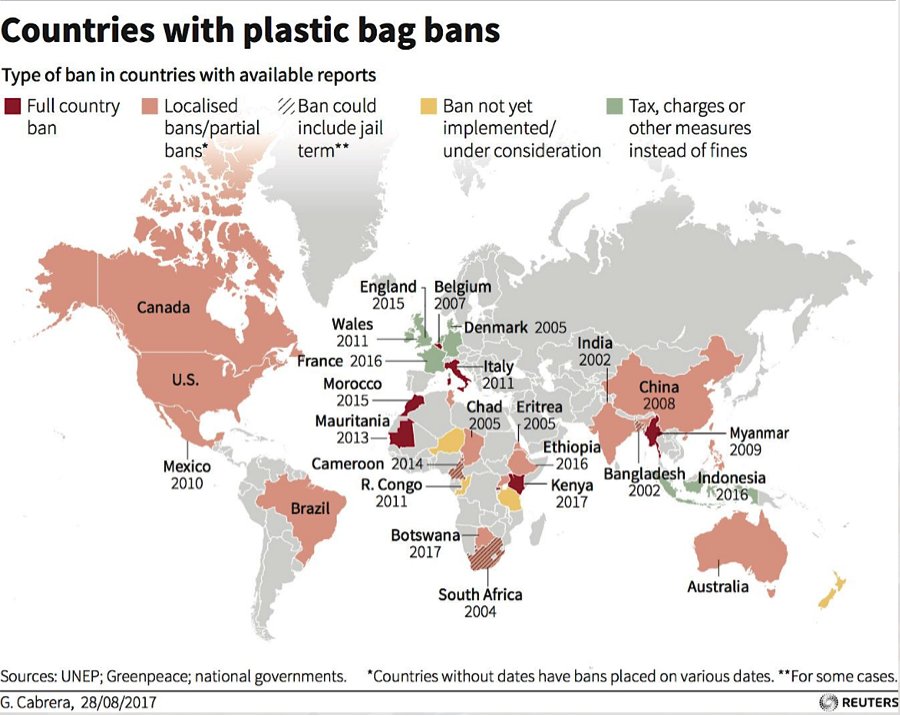
A full ban on disposable plastic bags isn’t always feasible however so some areas resort to a tax instead. The goal is the same: by charging people for plastic bags maybe they’ll bring their own reusable bags from home instead of buying new ones from the retailer. Here in Washington, DC we have such a bag tax in place which charges customers five cents for each bag. Since 2009, the tax has generated about two million dollars in average annual revenue and resulted in an estimated 60 percent decrease of bags in the city’s surrounding rivers. As would be expected however, whenever the government infringes on someone’s rights there is bound to be controversy. This was the case for the proposed bag ban in New York City [2] that recently flopped.
Plastic bags are undoubtedly convenient. But that convenience comes at a cost to the environment. Whether it’s banning, taxing, or recycling we need better mechanisms in place keep these bags out of the ocean.
Sea Foam
Polystyrene and expanded polystyrene (EPS) (often mistaken for Styrofoam™) is no stranger to most of us. It’s used in disposable coolers, cups, food containers, and packaging. By one estimate our annual global production of EPS is about 9 million tons [4], that’s a lot of disposable coffee cups.



Unlike high-density polyethylene or other more rigid plastics, EPS breaks down very easily in the natural environment. It doesn’t biodegrade, it just disintegrates into ever-smaller pieces, eventually turning into microplastic. Marine creatures at the lower end of the food chain ingest these microplastics and eventually it reaches the apex predators where it accumulates in toxic concentrations.
There are hundreds of bans on polystyrene and EPS across the country (more than a hundred in California alone [3]). Check out this list at Groundswell to see them all. I could not find any state-wide bans on foam, but there are many city wide bans, including: San Francisco, Baltimore, Washington, and New York City. Like bag bans, banning foam is a controversial issue and some (mostly foam lobbyists) point to a lack of evidence proving the benefit of the ban over alternatives like increased recycling. To be fair, EPS has high recycling rates relative to some other plastics, currently around 30% [5], but that means roughly 70% is still getting tossed-out.
Instead of lobbying local legislatures to ban polystyrene, the As You Sow non-profit has lobbied businesses instead. Through their efforts McDonalds, Dunkin’ Brands, and Target have all committed to reduce or eliminate polystyrene packing in their operations. Commitments from McDonalds and Dunkin’ Brands alone represent hundreds of millions of polystyrene cups which will be taken out of circulation. If other major corporations sign-on the impact on polystyrene use will be immense.
Straws, bags, and foam are not the only types of plastics causing harm, but they are some of the most common and widespread. There are numerous groups out there that are working hard to reduce our consumption of these items and they need help. Get involved and challenge yourself to use less straws, bags, and foam.
Concluding Thoughts on Ocean Plastic Pollution
After reading dozens of reports and news articles for this multi-part series on ocean plastic pollution I’m terrified but hopeful. Somehow we’ve managed to ensure that plastic has reached every possible reef, abyss, or atoll on the planet. It’s wrecking havoc on marine ecosystems and soon it’ll be wrecking havoc on us too if we don’t change course. There are groups of activists and entrepreneurs who have their hands on the helm. Through innovative technology, new markets, better policies, or public outreach we are getting better about managing this tragedy of the oceans. It’s a start, but ocean plastic pollution is a global problem and we need all hands on deck to bring about real change.
What Can You Do?
Reconsider your plastic relationship status. Send businesses a message and buy products made with recycled plastics. Ask your local bartender or barista to stop serving plastic straws and stirrers in your drinks. Bring your own bags when you go shopping. Carry your own reusable water bottle. Talk to your local and state representatives and ask them to consider policies that ban or tax foam and plastic bags. Too controversial? Ask about recycling programs instead. Enjoy long walks on the beach? Pick up some litter while you walk. Most importantly, be an advocate and spread the word on dangers of ocean plastic. This problem isn’t going anyway unless we make it.
References
[1] https://www.nps.gov/commercialservices/greenline_straw_free.htm
[2] https://www.newyorker.com/magazine/2016/05/02/saving-america-from-plastic-bags
[3] http://www.latimes.com/opinion/opinion-la/la-ed-polystyrene-ban-20180126-story.html
[4] https://mcgroup.co.uk/news/20130822/global-eps-production-grew-200000-tonnes.html
[5] http://epsindustry.org/sites/default/files/EPS%20Recycling%20brochure%20PRINT%20no%20bleed.pdf
[7] http://www.climateactionprogramme.org/news/london-city-airport-bans-plastic-straws

